Feb 26, 2024
Exploring the Impact of Intelligent Automation and AI on Software Testing and Delivery
Integrating automation and artificial intelligence (AI) in software development reshapes how organisations approach software testing and delivery. This change is particularly significant for deploying complex software, such as Enterprise Resource Planning (ERP) or core banking systems. It affects various global software delivery methodologies that impact organisations, including Agile, DevOps, and the Waterfall model.
AI and Automation within DevOps Practices
Adopting AI and automation in DevOps aims to refine the entire software development lifecycle, from development to production. This approach improves efficiency, enhances software quality, and ensures smooth transitions between development phases. Key focus areas include strategic planning, process improvement, and change management, ensuring that technological innovations align with overall business objectives and operational requirements.
Enhancing Testing and Operations with AI
AI’s growing role in software testing and operations introduces new tools and capabilities for automating complex tasks and providing deep insights. Notable applications of AI in this area include:
- Automated Testing: Leveraging AI to automate various testing processes, such as regression and user acceptance testing (UAT), significantly reduces manual effort and shortens the testing cycle.
- Intelligent Data Analysis: Using AI algorithms to analyse development and operational data enables predictive analytics, allowing teams to address potential issues proactively.
- Dynamic Environment Management: AI’s role in automating the setup, maintenance, and management of development, testing, and production environments helps minimise the resources needed for these tasks.
- Streamlined Release Management: AI assists in optimising release management by automating deployment pipelines and predicting the impacts of new releases, leading to more efficient release cycles.
Implications for Software Delivery and Large-Scale Implementations
Automation and AI’s implications extend to the delivery of large-scale software projects. Organisations can more effectively navigate the complexities of large-scale deployments by automating critical aspects of testing, release management, and environment setup. This approach reduces risks and enhances system reliability and performance, ensuring software implementations meet high-quality standards.
Adapting Software Delivery Teams to the New Era
The transition towards more automated and AI-driven processes requires software delivery teams to adapt. This adaptation involves shifting their focus towards more strategic and innovative activities, no matter the specific methodology employed (DevOps, Waterfall, etc.). Embracing AI and automation tools enhances operational efficiency and promotes a culture of continuous improvement and skill development within teams. This cultural shift is crucial for fostering innovation and ensuring teams remain competitive in a rapidly evolving technological landscape.
Strategic Realignment Beyond Technological Integration
The successful integration of automation and AI into software development processes involves more than just adopting new technologies. It requires a strategic realignment of organisational methods and goals to leverage these technologies fully. Achieving a balance between operational efficiency, cost-effectiveness, and high-quality software delivery while also mitigating potential risks through early detection and resolution of issues is essential. This strategic approach ensures that technological advancements contribute to the organisation’s broader objectives and enhance its software delivery capabilities.
The Future of Software Delivery
As companies in various industries continue to face the challenges of digital transformation, incorporating automation and AI into software development and delivery can be a promising solution. This transition can provide significant benefits, such as improved efficiency, reduced costs, and higher-quality software products. However, achieving these benefits requires a comprehensive strategy that covers technological adoption, strategic planning, and cultural adaptation.
Organisations must utilise automation and AI to support their business objectives and enhance their software delivery capabilities. This requires adopting new technologies and fostering an environment encouraging continuous learning, innovation, and flexibility among software delivery teams. By doing so, companies can ensure they are well-prepared to tackle the challenges of an increasingly complex and fast-paced technological environment. Integrating automation and AI into software development and delivery can be a promising solution as businesses in various industries continue to undergo digital transformation. This transition can provide significant benefits, such as improved efficiency, reduced costs, and higher-quality software products. However, achieving these benefits requires a comprehensive strategy encompassing technological adoption, strategic planning, and cultural adaptation.


